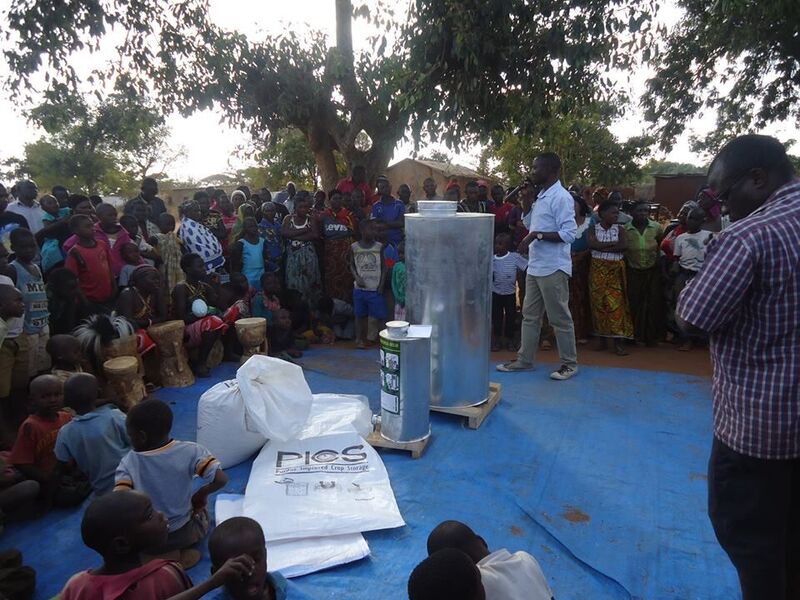Overall goal: GPLP aims at improving food security and income of small holder men and women farmers in the Central Corridor of Tanzania by addressing major constraints in post-harvest practice, access to improved technologies and adoption, knowledge sharing and related policies. Helvetas Swiss Intercooperation is implementing GPLP using a market system development approach and working through multi-stakeholder partnerships with private sector and public organizations.
Context : Postharvest Losses (PHL) in Tanzania are high and contribute to loss of income and food insecurity. PHL ranges between 15 to 40% for different crops, but are of particular concern for grains and pulses, which form the base for food and income for the majority. Knowledge and awareness on Post-Harvest Management (PHM) among farmers remains low. Extension services do not often include PHM training and farmers’ access to technologies remains limited. Farmers and MSME’s face difficulties to access financial services, which could allow them to invest in post-harvest technologies (PHT) or expansion of business. While women are highly involved in the PHM process, there is a wide gender-gap in rural communities, with women being in a disadvantaged position in relation to men, in access and control over resources as well as in decision-making. The Ministry of Agriculture, Livestock and Fisheries (MALF) has just come up with a National Strategy for Post-Harvest, which is expected to be launched end of 2017.

Outcomes of the phase:
1. Targeted smallholder farmers have access and adopt effective postharvest management practices and technologies
2. Postharvest policies and framework conditions are improved in Tanzania through implementation of PHM strategy and by-laws
3. Postharvest management stakeholders have access to information that enables decision making towards reducing postharvest losses
